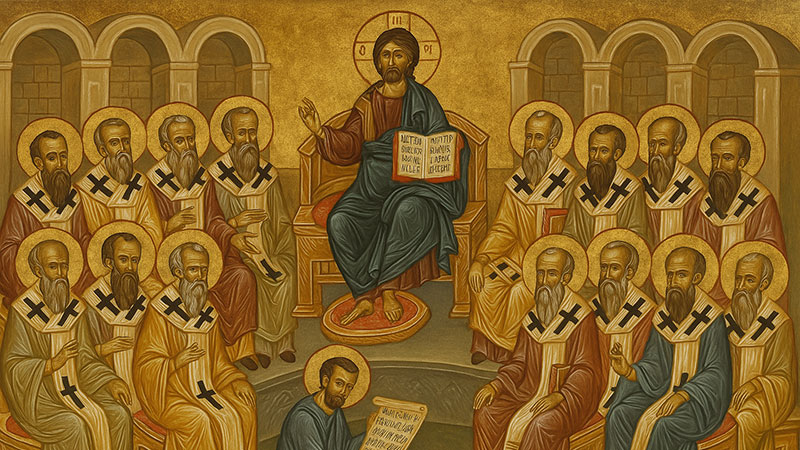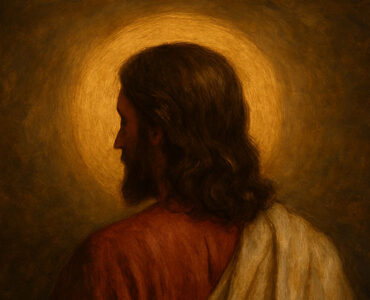The Christian faith is rich in history and diverse in expression. Yet it finds deep unity in ancient statements of belief. Among these, the Nicene Creed stands out as a foundational declaration. For over 1,700 years, it has shaped how Christians understand God, Jesus Christ, and the Holy Spirit.
This creed is not merely a historical document. It is a living confession that affirms essential truths of our faith. If you want to grasp the heart of Christian doctrine, understanding the Nicene Creed is vital.
Before exploring its deep statements, take time to pray. Ask the Lord to guide you. As believers, we are called to surrender our lives to Jesus Christ. He is our living God and the ultimate source of truth and salvation.
Why Was the Nicene Creed Formulated?
The Historical Context: The Nicene Creed originated from a pivotal moment in early Christian history: the Council of Nicaea in AD 325. This council was convened by Roman Emperor Constantine to address a major theological controversy known as Arianism.
Arius, a presbyter from Alexandria, taught that Jesus Christ was not fully God. He claimed that Jesus was a created being, subordinate to the Father. This teaching directly challenged the apostolic understanding of Jesus’ divinity, which is central to the Christian Gospel.
The early church fathers, guided by Scripture and apostolic tradition, recognized the danger of Arianism. They saw that it undermined the very possibility of salvation. If Jesus were not truly God, His death could not atone for the infinite sin of humanity. He could not bridge the infinite gap between a holy God and a sinful man.
Therefore, the Council gathered to clarify and affirm what the Scriptures teach about the nature of God and the person of Jesus Christ. Their goal was not to invent a new doctrine. Instead, they aimed to express clearly what Christians had always believed. The Council chose precise language to protect the truth and guard against misinterpretations.
This commitment to biblical truth reflects the Protestant emphasis on Sola Scriptura, holding the Bible as the ultimate authority for faith and practice.
Read More: Christianity’s 3 Core Shared Beliefs
Unpacking the Nicene Creed: Key Affirmations of Faith
The Nicene Creed is a concise yet comprehensive summary of fundamental Christian beliefs. It addresses the nature of God, the person and work of Jesus Christ, and the role of the Holy Spirit.
1. Affirming God the Father: The Creator
The Creed begins by declaring faith in “One God, the Father Almighty, Maker of heaven and earth, of all things visible and invisible.” This establishes God as the sovereign Creator, echoing biblical truths found throughout Scripture.
- Genesis 1:1 (ESV): “In the beginning, God created the heavens and the earth.”
- Psalm 121:2 (ESV): “My help comes from the LORD, who made heaven and earth.”
This statement emphasizes God’s omnipotence and His role as the ultimate source of all existence. It lays the groundwork for understanding His providential care for creation.
2. Affirming Jesus Christ: Fully God and Fully Man, Our Savior
This section is the longest and most critical part of the Nicene Creed, directly refuting Arianism and affirming the full divinity of Jesus Christ.
“And in one Lord Jesus Christ, the only-begotten Son of God, begotten of the Father before all worlds; God of God, Light of Light, very God of very God; begotten, not made, being of one substance with the Father; by whom all things were made.”
This precisely defines Jesus’ divine nature. He is “begotten, not made,” meaning He is eternally generated from the Father, sharing the same divine essence, not created in time.
“God of God, Light of Light, very God of very God” emphasizes His co-equality and co-eternality with the Father. The term “of one substance with the Father” was crucial in combating Arianism, affirming that Jesus possesses the very same divine nature as the Father.
- John 1:1-3 (ESV): “In the beginning was the Word, and the Word was with God, and the Word was God… All things were made through him, and without him was not anything made that was made.”
- Colossians 1:15-17 (ESV): “He is the image of the invisible God, the firstborn of all creation. For by him, all things were created, in heaven and on earth, visible and invisible… all things were created through him and for him.”
“Who, for us men for our salvation, came down from heaven, and was incarnate by the Holy Spirit of the virgin Mary, and was made man.”
- This articulates the Incarnation, that Jesus, though fully God, became fully human. This was “for us men for our salvation,” highlighting the purpose of His coming: to redeem humanity. His virgin birth signifies His unique divine origin.
- Philippians 2:6-7 (ESV): “who, though he was in the form of God, did not count equality with God a thing to be grasped, but emptied himself, by taking the form of a servant, being born in the likeness of men.”
- Luke 1:34-35 (ESV): “And Mary said to the angel, ‘How will this be since I am a virgin?’ And the angel answered, ‘The Holy Spirit will come upon you, and the power of the Most High will overshadow you; therefore the child to be born will be called holy, the Son of God.'”
“And was crucified also for us under Pontius Pilate; He suffered and was buried; And the third day He rose again, according to the Scriptures; And ascended into heaven, and sits on the right hand of the Father; And He shall come again, with glory, to judge both the living and the dead; Whose kingdom shall have no end.”
- This section details Jesus’ atoning work and future return. His crucifixion, suffering, and burial underscore His real humanity and the reality of His sacrifice. His resurrection “according to the Scriptures” is the cornerstone of Christian hope, confirming His victory over sin and death. His ascension and present reign at the Father’s right hand signify His authority and continued intercession for believers. Finally, His promised return in glory for judgment affirms His sovereignty and the culmination of God’s plan.
- Romans 5:8 (ESV): “But God shows his love for us in that while we were still sinners, Christ died for us.”
- 1 Corinthians 15:3-4 (ESV): “For I delivered to you as of first importance what I also received: that Christ died for our sins by the Scriptures, that he was buried, that he was raised on the third day by the Scriptures.”
- Acts 1:9-11 (ESV): “And when he had said these things, as they were looking on, he was lifted, and a cloud took him out of their sight… ‘This Jesus, who was taken up from you into heaven, will come in the same way as you saw him go into heaven.”

3. Affirming the Holy Spirit, the Church, and Future Hope
The final part of the Nicene Creed affirms the Holy Spirit’s deity and work, the nature of the church, and the ultimate hope of believers.
“And I believe in the Holy Spirit, the Lord and Giver of Life; Who proceeds from the Father and the Son; Who with the Father and the Son together is worshiped and glorified; Who spoke by the prophets.”
- This acknowledges the Holy Spirit as fully God (“the Lord”) and the source of spiritual life. The statement that He “proceeds from the Father and the Son” (the “Filioque” clause, a later Western addition not in the original 325 Creed, but widely adopted in Protestantism) emphasizes the unity within the Trinity. His worship and glorification alongside the Father and Son affirm His co-equality. His inspiration from the prophets underscores the divine origin of Scripture.
- John 15:26 (ESV): “But when the Helper comes, whom I will send to you from the Father, the Spirit of truth, who proceeds from the Father, he will bear witness about me.”
- Acts 1:8 (ESV): “But you will receive power when the Holy Spirit has come upon you, and you will be my witnesses in Jerusalem and all Judea and Samaria, and to the end of the earth.”
“And I believe in one holy catholic and apostolic Church; I acknowledge one Baptism for the remission of sins; And I look for the resurrection of the dead, And the life of the world to come. Amen.”
- This speaks to the nature of the Church (universal/catholic, set apart/holy, and founded on the apostles’ teaching), the significance of baptism as an act of obedience and a sign of new life in Christ, and the future hope of bodily resurrection and eternal life with God.
- Ephesians 4:4-6 (ESV): “There is one body and one Spirit, just as you were called to the one hope that belongs to your call, one Lord, one faith, one baptism, one God and Father of all, who is over all and through all and in all.”
- John 11:25-26 (ESV): “Jesus said to her, ‘I am the resurrection and the life. Whoever believes in me, though he dies, yet shall he live, and everyone who lives and believes in me shall never die. Do you believe this?”
Read More: What is Jesus’ Role in the Trinity?
Our Living God, Jesus Christ: The Essence of the Creed
At the very heart of the Nicene Creed is the truth about our Lord Jesus Christ. The Creed meticulously defines His divine nature and redemptive work because He is truly our only way to salvation.
If Christ were not truly God, His sacrifice would be insufficient. If He did not truly rise, our faith would be in vain, as 1 Corinthians 15:17 (ESV) reminds us: “And if Christ has not been raised, your faith is futile and you are still in your sins.”
The Nicene Creed serves as a timeless reminder that our hope is not in human efforts or philosophical constructs, but in the person of Jesus Christ, fully God, fully man, who died for our sins and rose again. It calls us to place our complete trust and surrender our lives to Jesus Christ, our living God and Savior.
Conclusion: A Timeless Confession for Believers
The Nicene Creed remains a powerful and unifying statement of faith for Christians worldwide. It articulates the fundamental truths about God, Jesus Christ, and the Holy Spirit that are essential to the Christian Gospel. By understanding and affirming the Nicene Creed, believers connect with a theological heritage that has safeguarded biblical truth for centuries.
As you reflect on these profound doctrines, keep praying. Ask God to deepen your understanding and strengthen your faith. Let the truths of the Creed draw you into a greater surrender to Jesus Christ. Through Him, our living God and only Savior, we receive eternal life and an unshakeable hope.
The Creed is not an end in itself, but a guide that consistently points us back to the glory and saving work of our Lord.
FAQ
No, not at all. The Nicene Creed doesn’t replace God’s Word but serves as a summary of its most important teachings. It acts as a tool to explain and protect the core truths of the Bible, especially concerning the identity of Jesus Christ, and should never be placed above the ultimate authority of Scripture.
The Nicene Creed is a statement of core Christian beliefs that have been held for centuries. However, your salvation is received directly through personal faith in Jesus Christ as Lord and Savior. Therefore, the creed is a helpful tool for understanding the Christian faith, not a condition for salvation.
Yes. The Nicene Creed concisely states the most important truths about the person of Jesus Christ, His divinity, His resurrection, and our salvation. Understanding these principles helps you to know Him better, which is essential for anyone who desires a relationship with Him.









Add comment